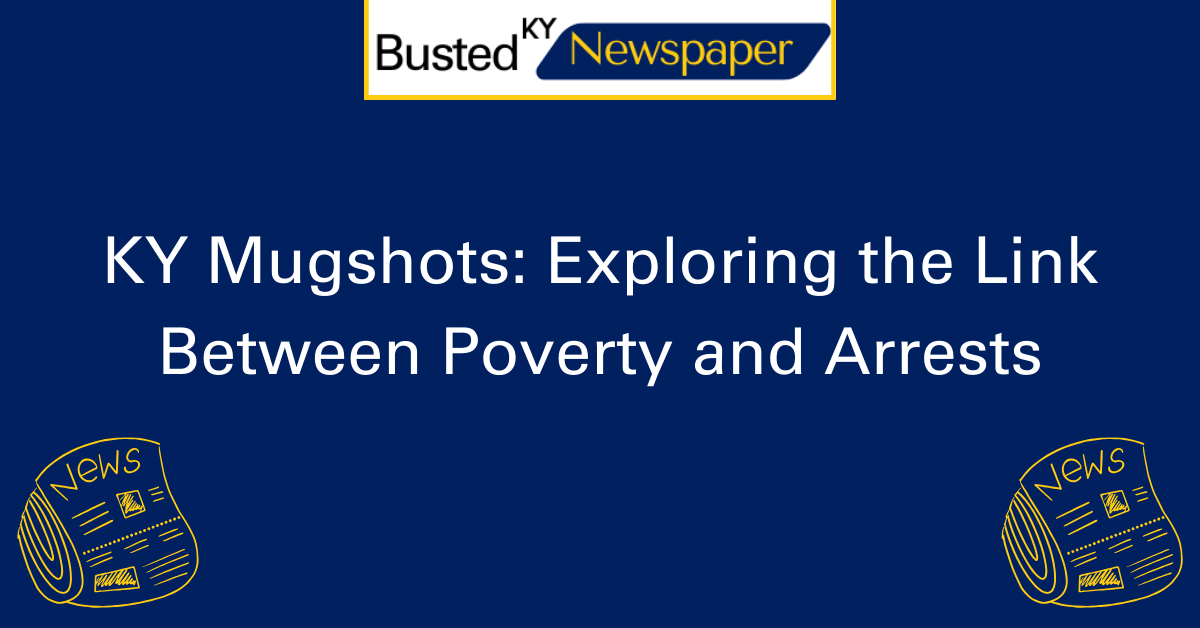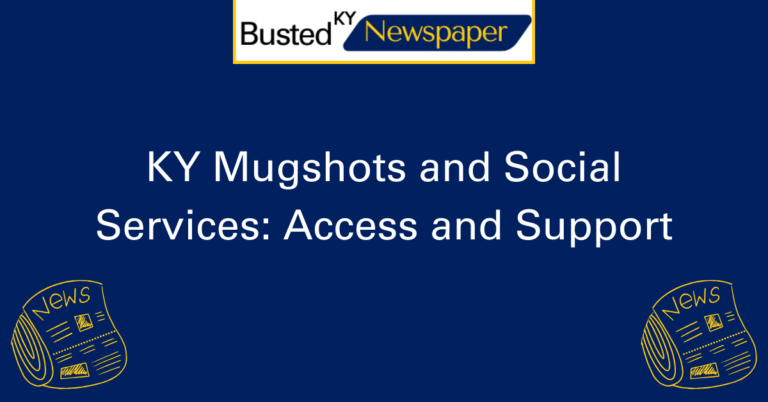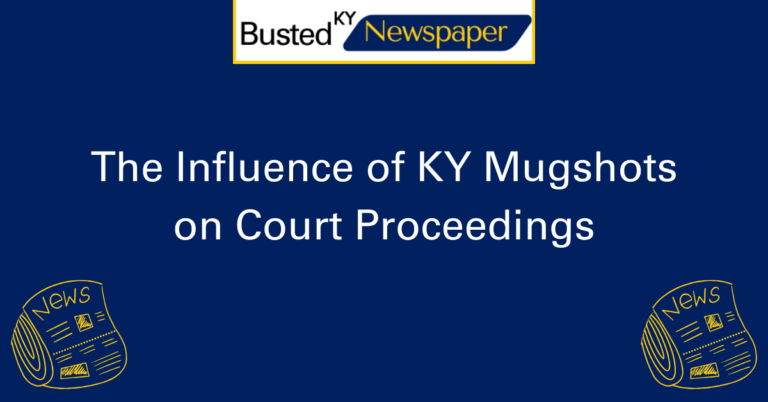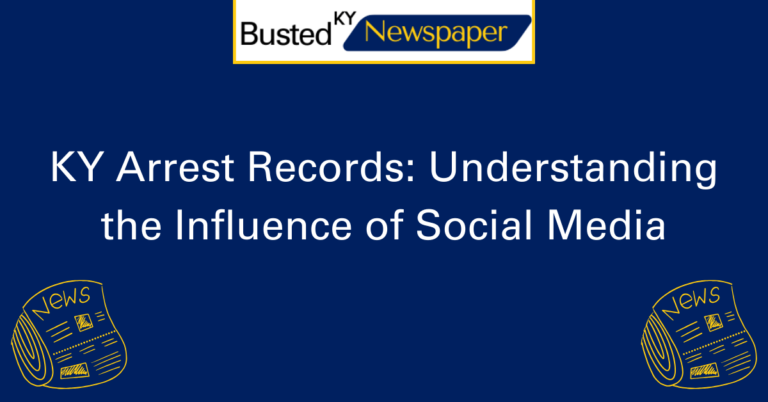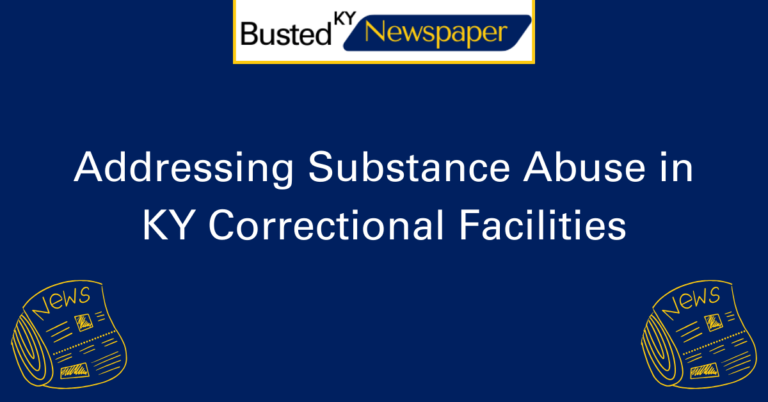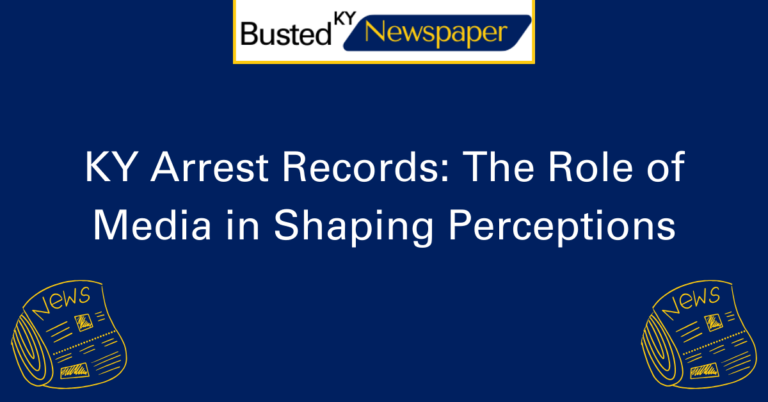KY Mugshots: Exploring the Link Between Poverty and Arrests
In today’s society, poverty is a complex issue that affects millions of individuals and families. It is a topic that often sparks debates and discussions, as people try to understand the underlying causes and consequences. One area that is often overlooked is the link between poverty and arrests. This connection is a crucial aspect of understanding the challenges faced by marginalized communities and the cycle of poverty that can be perpetuated.
KY Mugshots aims to shed light on this important issue by exploring the link between poverty and arrests in Kentucky. Through in-depth research and analysis, we delve into the factors that contribute to higher arrest rates in impoverished areas and examine the impact this has on individuals, families, and communities as a whole. Our goal is to raise awareness, foster understanding, and ultimately advocate for change that can break the cycle of poverty and reduce the number of arrests in our state.
Impact of Poverty on Arrest Rates
Understanding the link between poverty and arrests is crucial in addressing the complex issue of poverty in our society. Poverty can significantly impact an individual’s likelihood of being arrested, creating a cycle of disadvantage that is difficult to escape. This section explores the various factors that contribute to higher arrest rates in impoverished areas.
Socioeconomic Disparities and Criminalization
One of the key factors that contribute to the higher arrest rates in impoverished areas is the presence of socioeconomic disparities. Poverty often leads to limited access to quality education, healthcare, and employment opportunities. These disparities can result in higher rates of criminal activity and a higher likelihood of being arrested.
Systemic Inequality and Policing Practices
Systemic inequality plays a significant role in perpetuating the cycle of poverty and arrests. Marginalized communities often face discriminatory policing practices, such as racial profiling and biased law enforcement. These practices disproportionately target individuals living in poverty, leading to higher arrest rates in these communities.
Drug Abuse and Poverty
Drug abuse and poverty often go hand in hand, creating a vicious cycle that is difficult to break. Individuals living in poverty may turn to substance abuse as a coping mechanism or as a way to escape their challenging circumstances. This increases their chances of engaging in criminal activities related to drug abuse, leading to higher arrest rates.
Unemployment and Desperation
The lack of employment opportunities in impoverished areas can drive individuals to engage in criminal activities out of desperation. Unemployment and the resulting financial instability create an environment where individuals may resort to illegal means to meet their basic needs. This further contributes to higher arrest rates in these areas.
Community Disinvestment and Lack of Resources
Poverty-stricken communities often face disinvestment and a lack of essential resources. Limited access to quality education, healthcare, social services, and community development programs can contribute to higher rates of criminal activity. The absence of these resources leaves individuals with few alternatives and increases their likelihood of being arrested.
The Cycle of Poverty and Arrests
The link between poverty and arrests forms a vicious cycle that is challenging to break. Individuals who have been arrested often face difficulties in finding employment and reintegrating into society. This perpetuates their cycle of poverty, increasing their chances of reoffending and being arrested again. Breaking this cycle requires comprehensive efforts and systemic changes to address the root causes of poverty and its impact on arrests.
FAQ’s
What is the link between poverty and arrests?
In today’s society, poverty and arrests are interconnected in various ways. Living in poverty can increase the likelihood of engaging in criminal activities due to limited access to resources, education, and job opportunities. Additionally, individuals in poverty may face systemic disadvantages and discrimination, leading to higher rates of arrests.
Poverty in Kentucky can exacerbate social and economic inequalities, which can lead to higher arrest rates. Limited access to education, healthcare, and stable housing can create a cycle of disadvantage, making individuals more vulnerable to engaging in criminal activities or being targeted by law enforcement.
The consequences of the link between poverty and arrests are far-reaching. Individuals who experience arrests may face legal barriers, such as difficulty finding employment or re-entering society. Families and communities can also suffer from the social and economic impacts, perpetuating the cycle of poverty.
By understanding the link between poverty and arrests, we can advocate for systemic changes that address the root causes of poverty and inequality. This includes investing in education, affordable housing, job opportunities, and social support systems. By breaking the cycle of poverty, we can reduce the number of arrests and create a more just society.
KY Mugshots aims to raise awareness and foster understanding regarding the link between poverty and arrests in Kentucky. Through in-depth research and analysis, we provide comprehensive coverage of the factors contributing to higher arrest rates in impoverished areas. Our ultimate goal is to advocate for change that breaks the cycle of poverty and reduces the number of arrests in our state.

